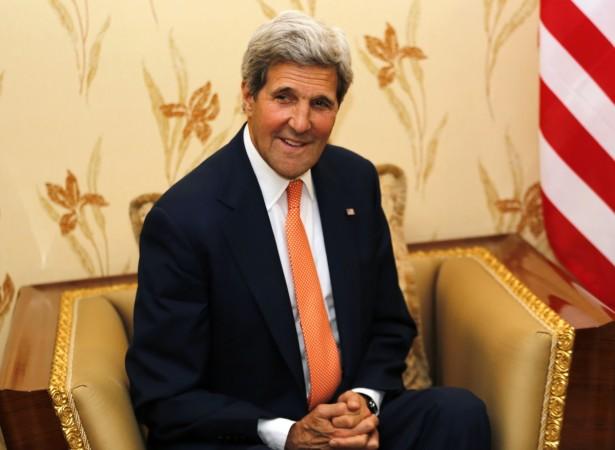
The ISIS rebels in Iraq have claimed that they have seized the country's main oil refinery at Baiji, north of Baghdad, only a day after US Secretary of State John Kerry reached the capital city and vowed "intense and sustained support" to the country, which is on the verge of falling to the hands of the jihadist insurgents.
This comes hours after the Sunni militants, who aim to take over northern Iraq, seized the only legal crossing point with Jordan, leaving the entire western front void of the government forces.
The refinery that fell to the Al-Qaeda breakaway group had been under siege for over 10 days with the military forces desperately trying to retake the complex that supplies almost a third of Iraq's refined fuel.
As the militants continue to seize a major swathe of the northern Iraq, US President Barack Obama last week sent across around 300 American military advisers to help Iraqi army defeat the jihadists. The United States has, however, refused to be drawn fully into the war and has only left open the possibility of air strikes, if the crisis escalates to a dangerous level.
Earlier, Kerry reiterated the danger posed by the growing might of the insurgents and said that the militants, known by the same name as the caliphate state they aim to built (Islamic State of Iraq and Syria), were a threat to Iraq's existence. The comments came after he met key politicians in Baghdad including the Iraqi Prime Minister Nouri-al-Maliki, as well as key Shia and Sunni figures.
The United State's support in bearing down on the ISIS militants "will be intense and sustained and if Iraq's leaders take the necessary steps to bring the country together, it will be effective," Kerry told reporters in Baghdad.
He also said that the Iraqi leader had affirmed "on multiple occasions" his commitment to July 1 as the date to start a reform in the government, which could see more Sunnis and Kurds share power – something that the Obama administration has been keen to see happening, although there is no evidence on whether this strategy will help preclude further violence.
Washington has been subtly hinting that the ongoing crisis was partly due to Iraq's Shiite prime minister, Maliki's failure to quell the advancing insurgents, although the United States has refused to be blatant on this subject.





!['It's not Mumbai traffic, it's air traffic': Suriya apologises to Mumbai media after paparazzi yelled At Him for making them wait for hours [Watch]](https://data1.ibtimes.co.in/en/full/806234/its-not-mumbai-traffic-its-air-traffic-suriya-apologises-mumbai-media-after-paparazzi.jpg?w=220&h=138)
![Bigg Boss 16-fame Sreejita De and Michael Blohm-Pape exchange wedding vows in dreamy Bengali ceremony [Inside Pics]](https://data1.ibtimes.co.in/en/full/806233/bigg-boss-16-fame-sreejita-de-michael-blohm-pape-exchange-wedding-vows-dreamy-bengali-ceremony.jpg?w=220&h=138)






